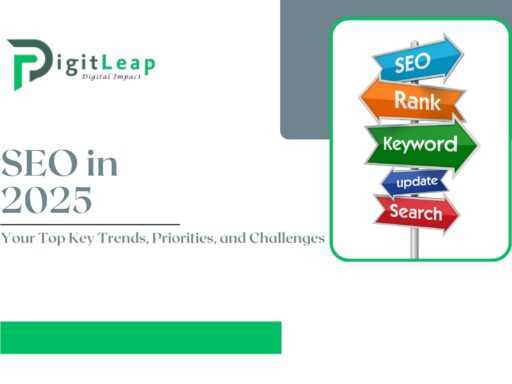Google recently announced updates to its Customer Match policy, a change that has significant implications for digital advertisers. Customer Match is a powerful tool that allows businesses to use their first-party customer data to reach and re-engage with specific audiences across Google’s platforms, such as Search, YouTube, Gmail, and Display. This policy update reflects Google’s increasing emphasis on privacy, transparency, and compliance in the digital advertising space. Let’s explore what this change means for marketers, the opportunities it presents, and the new compliance requirements that businesses must follow.
What Is Google’s Customer Match?
Before diving into the policy changes, let’s take a closer look at Customer Match itself. Google’s Customer Match allows advertisers to upload their customer data, such as email addresses, phone numbers, and mailing addresses, to create personalized and targeted ad campaigns. With this tool, businesses can target their known customers, re-engage with users who have interacted with their brand, and build lookalike audiences to reach similar new users.
For example, a business can use Customer Match to show personalized ads to previous customers on YouTube, deliver exclusive offers to loyal shoppers via Google Search ads, or re-target past website visitors with tailored promotions. Customer Match has become a vital tool in re-engagement strategies and expanding brand reach using verified customer data.
What’s Changing in Google’s Customer Match Policy?
Google’s updates to the Customer Match policy are centered around enhanced privacy measures, transparency requirements, and compliance standards. These updates are meant to align with stricter global data privacy regulations, such as GDPR in the European Union and the CCPA in California, ensuring that Customer Match adheres to the latest legal standards. Here are the main components of Google’s updated policy:
- Stricter Data Collection Practices
Under the new policy, Google requires advertisers to ensure that they have explicit consent from users to use their data for Customer Match. This means that businesses must collect and manage customer data in ways that comply with data privacy laws, making transparency and user consent a top priority. Advertisers must now confirm that they have obtained explicit permission from users before uploading their data to Google for ad targeting. - Enhanced Transparency and Privacy
Google is introducing stronger guidelines for transparency to ensure that users are aware of how their data is used in Customer Match campaigns. Advertisers are encouraged to provide clear, accessible privacy policies that outline how customer data is collected, used, and shared. Transparency helps build trust with users, making it essential for brands to communicate openly about their data practices. - Improved Data Security Standards
The updated policy emphasizes data security by requiring businesses to implement stronger data protection practices. This includes encrypting customer data, securely storing user information, and ensuring that any third-party vendors handling this data also meet Google’s security standards. Enhanced security measures protect both advertisers and users, minimizing risks of data breaches and misuse. - Verification Process for Advertisers
Google has implemented a verification process for businesses using Customer Match. This means that only verified advertisers will have access to Customer Match features, ensuring that data handling is managed responsibly. Verification may involve proving compliance with data privacy laws and adhering to Google’s data handling practices, creating a level of accountability that protects users. - Restriction on Sensitive Data
Google’s updated Customer Match policy prohibits the use of sensitive data categories, such as health, financial status, or political affiliation, in ad targeting. This change ensures that Customer Match data remains within ethical boundaries and respects user privacy. Advertisers must confirm that their data collection methods do not infringe on sensitive areas, maintaining a responsible approach to audience targeting.
Why Google’s Policy Update Matters for Marketers
The updated Customer Match policy represents a shift toward more ethical and privacy-centered advertising. With growing consumer awareness around data privacy, customers are increasingly selective about the brands they interact with. Google’s policy changes help reassure users by promoting transparency and responsible data usage. For marketers, the updated policy offers both opportunities and responsibilities.
Opportunities
- Building Trust with Audiences
By adopting Google’s recommended transparency and privacy measures, advertisers can build trust with audiences. Transparent data practices communicate that a brand values and respects user privacy, which can increase brand loyalty and engagement. - Enhanced Ad Relevance
Customer Match’s highly targeted approach allows businesses to show ads to users who are already interested in their products or services. The updated policy, by focusing on accurate, consent-based data, helps ensure that ads reach receptive audiences, making campaigns more effective. - Compliance with Global Data Standards
For brands operating internationally, Google’s compliance-aligned policies make it easier to adhere to global data privacy laws. Marketers can confidently use Customer Match without worrying about compliance issues in different regions, simplifying the process of managing international campaigns.
Responsibilities
- Obtaining User Consent
As explicit user consent is now required, brands need to refine their data collection processes to meet this standard. Businesses must inform users about how their data will be used for targeted ads and get clear permission to use that information in Customer Match campaigns. - Data Security and Ethical Use
Marketers must implement strong data security practices, protecting customer information and adhering to data-handling protocols. This includes storing data responsibly, encrypting sensitive information, and ensuring all Customer Match activities align with Google’s ethical guidelines. - Clear Communication of Privacy Policies
A well-crafted privacy policy is essential under Google’s updated policy. Brands should update their privacy policies to reflect current data practices, making it easy for users to understand how their information is handled. Transparent policies build trust and prevent misunderstandings that could harm brand reputation.
How to Make the Most of Customer Match under Google’s New Policy
To maximize the effectiveness of Customer Match in line with Google’s new guidelines, businesses should prioritize ethical data practices and a user-centered approach. Here are some practical ways to make the most of this tool:
- Refine Your Data Collection Process
Collect customer data through transparent, user-friendly methods, such as opt-in forms, loyalty programs, or newsletter sign-ups. Clearly inform users how their data will be used, giving them the choice to opt-in with full knowledge of the benefits. This builds trust while ensuring compliance with Google’s updated Customer Match policy. - Leverage Customer Insights for Targeted Campaigns
Use the data gathered through Customer Match to create targeted campaigns that reflect the preferences and needs of your audience. By segmenting your customer data, you can deliver personalized offers, recommendations, and re-engagement messages that resonate with specific customer segments. - Create Lookalike Audiences for Greater Reach
One of Customer Match’s strengths is its ability to help build lookalike audiences. By targeting users who share characteristics with your existing customers, you can reach new prospects likely to be interested in your offerings. Lookalike audiences allow you to grow your customer base while maintaining relevance and precision. - Ensure Data Security and Compliance
Make data security a top priority by encrypting information and using secure storage methods. Train your team on best practices for data handling and enforce strict compliance with Google’s updated standards. Ensuring that every step in the Customer Match process meets Google’s requirements will help prevent data breaches and protect customer information. - Monitor Campaign Performance and Adjust
Regularly track the performance of your Customer Match campaigns to understand what’s working and where improvements can be made. Look at metrics like engagement rates, click-throughs, and conversions to gauge success. Use this data to refine your targeting approach, ensuring that you’re maximizing the potential of Customer Match while respecting user privacy.
Conclusion
Google’s updated Customer Match policy reflects the growing importance of ethical data practices and user privacy. By aligning with these standards, businesses can use Customer Match effectively while building trust with their audiences. These updates require marketers to adopt transparent data collection methods, enhance security, and respect user preferences—all essential for maintaining credibility in today’s digital world.
At Digit Leap, we help brands navigate these updates and maximize the potential of tools like Customer Match, ensuring compliance while driving impactful results. By embracing transparency and ethical practices, we empower businesses to create meaningful connections with their customers and thrive in a privacy-conscious landscape.






